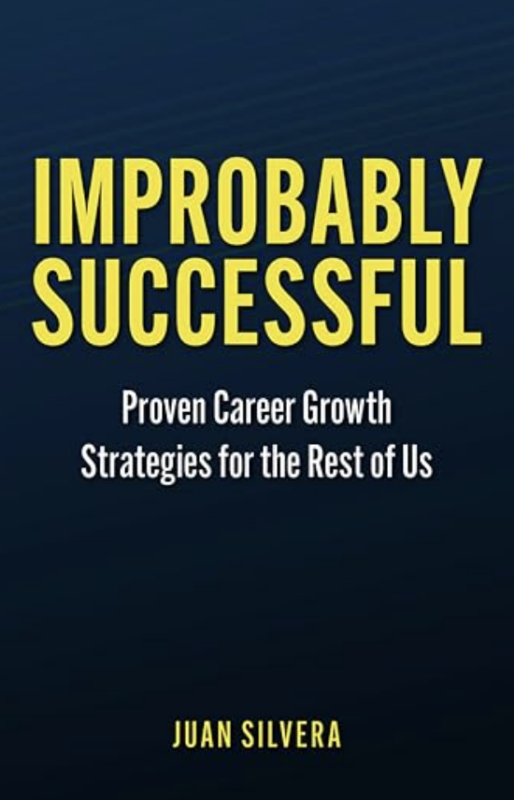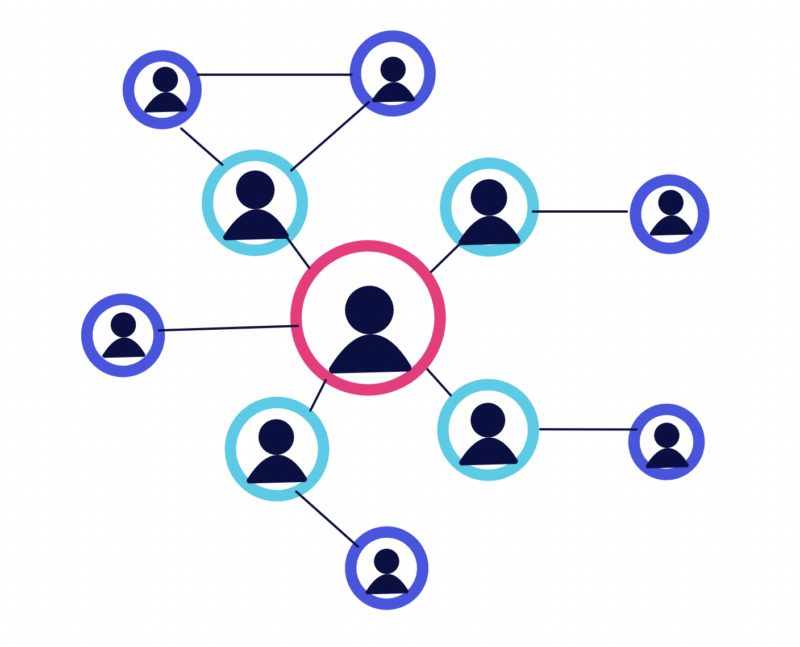
Reviews
Non-Linear Career Paths: Advice They Don’t Teach You in College
What career path should I choose? How do I network in college and beyond? How do I conduct myself in an interview to land that dream job? How can I develop better communications skills? At some point in your life, I’m sure you’ve asked yourself similar questions. And, as I’m writing this and my university graduation looms, these questions are foremost on my mind.
Given that upcoming life milestone, I thought it would be useful to read Juan Silvera’s Improbably Successful: Proven Career Growth Strategies for the Rest of Us. To my pleasant surprise, Silvera teaches much more than landing that next interview, or what to wear to make a good first impression. He offers great insights on the art of communication, the positive impact of building professional relationships, and how to take personal priorities and financial setbacks when making the “big move.”
Like life itself, successful career paths are non-linear. Silvera’s seasoned insights provide invaluable guidance for navigating the challenges and opportunities for career advancement across generations. Improbably Successful is not a blueprint for getting an interview, it’s a guidebook full of wise, experienced advice that reflects the complexities and joys of building a fulfilling career.

Starting with the End in Mind
Improbable Fact: “Professional surfers, skate boarders, musicians, athletes, travel vloggers.… they all make a living doing what they love… In some of these fields, natural talent is required, often it is a solid plan and a vision that allows these individuals to fulfill their professional dreams.”
As a young adult, starting with the end in mind seems difficult. I don’t know what I want my future to look like! This is exactly what Juan Silvera talks about in chapter one, “Starting with the End in Mind.” He instructs readers to think about what they enjoy doing, set a vision, and create a plan to achieve that vision in their career. As a child, Juan loved telling stories. He enjoyed having an audience and persuading people through his narratives. When he discovered marketing, he realized it was exactly what he wanted to pursue. He then built a plan in hopes of becoming a Chief Marketing Officer in his profession.
Silvera argues that persistence and perseverance are “your best friends” when it comes to creating the career you want. Not only do you need time to grow and expand your expertise, but you also need to be proactive in creating a deliberate plan of where you envision yourself in 20 or more years.
In the data world, it’s easy to get caught up on the “next best thing.” Whether it’s learning the latest programming language, data visualization tool, or database management system, there’s always something new to master. However, I’ve learned the importance of creating a vision of what I want my future data career to look like and then focusing on mastering specific tools that will help me achieve those goals.

Communication: The Master Skill
Improbable Fact: “There is a clear correlation between good reading habits and strong writing skills. It seems that, the more we read, the better we write.”
Juan Silvera argues that the art of communication is one of the best skills one can master in their career. Leaders who have better verbal and written communication skills often progress higher through the ranks than those who do not. However, in the world of ChatGPT and Grammarly, it’s very easy for young professionals to become overly reliant on AI writing tools. Then, in interviews, they freeze! The first piece of advice that Silvera gives is to know the facts and figures of your domain. This way, you can contribute valuable knowledge to conversations in your workspace and impress your managers.
Because of how fast the data world is evolving, it’s important to keep up with the latest new technologies (and vocabulary). Even if you don’t use the technology on a daily basis, being knowledgeable about new(ish) data tools like Snowflake, Fivetran, Dataiku, Azure, AWS (Amazon Web Services) helps you understand today’s data conversations and stay relevant in a highly competitive field.
For young data professionals, I recommend reading and writing about data to keep up those skills well-honed. For instance, here at Action, I’ve enjoyed reading and writing book reviews for Annie Nelson’s “How to Become a Data Analyst” and Kate Strachnyi’s “Colorwise,” not only because it allows me to practice my writing, but also because it broadens my knowledge of specific data subjects and strengthens my reading-to-writing skills.

If you’re interested in breaking into the data field, check out my book review on Annie Nelson’s “How to Become a Data Analyst”!
Connections – Nourishing the Network Today, For Tomorrow
Improbable Fact: “If you don’t reach out to your most valuable contacts when you don’t need them, then when you do, your email or text will likely be received as just a favor from somebody in the past who never took the time to check in occasionally.”
Not all networking is equal. One of the best pieces of advice Silvera gives is to focus on strategically building professional connections by identifying the social or professional circles where people who can open doors for you spend their time. For example, he recommends that if you’re Hispanic, the ALFA (Association of Latinos in Finance or Accounting) would probably be more effective and beneficial in networking than a generic finance event.
For building and maintaining professional relationships, Silvera advises reaching out at least once a year to the most influential people in your network. In doing this, you’re building a network of “savings.” If the only time you reach out is to ask for recent job offers or connections, that relationship won’t likely last or thrive. He also emphasizes the importance of helping others in your network. Not only does that allow you to have a positive impact on that person’s life, but it can also yield rewards for yourself down the road as most people will remember how you helped them and return the favor.
This section stood out because of how undervalued and unused this advice is in college. In my social circles, most of the students I know are concerned about getting perfect grades and neglect to foster connections and networking in their community. Having realized the importance of this early on in college, I’ve made an effort to nurture professional relationships, and as a result, I’ve been able to participate in multiple internships through the professional network I’ve established.
For aspiring data scientists, networking is extremely important in getting job referrals. Candidates who are referred are 7x more likely to be hired than ones applying through job postings. Young professionals, make sure you join clubs, associations, and attend conferences where you can meet companies and professionals!

Final Thoughts
As I step into the world beyond academia, Silvera’s lessons will serve as a beacon to me. I have now set a clear vision for where I want to see myself in 20 years. I’ve started learning new data skills, not just for the next job, but for the rest of my data career. I’ve begun to prioritize communication in my professional and academic life, understanding that even in the world of AI, there is no substitute for mastering the skills of communication. I’ve been conscious of nurturing more professional relationships (such as connecting with more employees at Action to gain insights into their data consulting careers) and investing in a “networks saving.”
In the data field where continuous learning and adaptation are critical, Improbably Successful stands the test of time, and will be a companion I’ll likely revisit as I begin moving forward on my professional journey.





